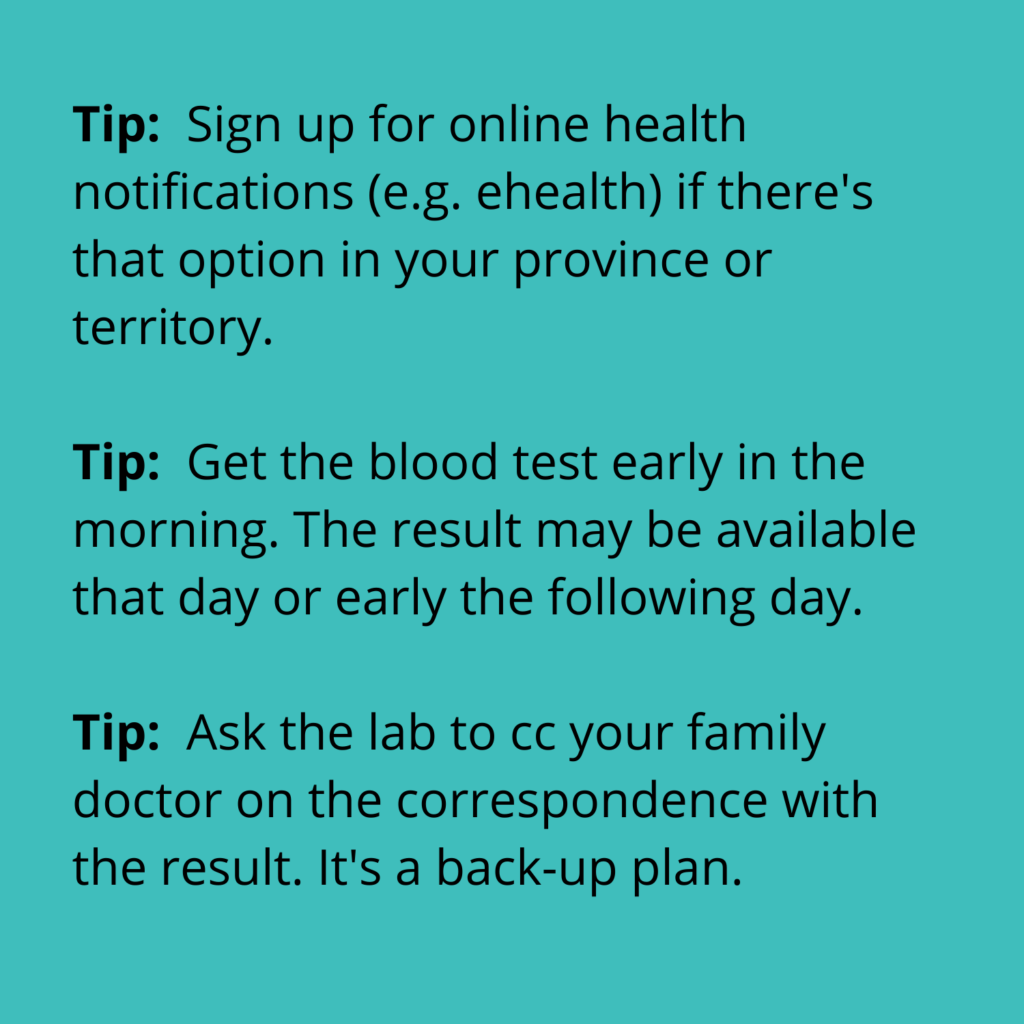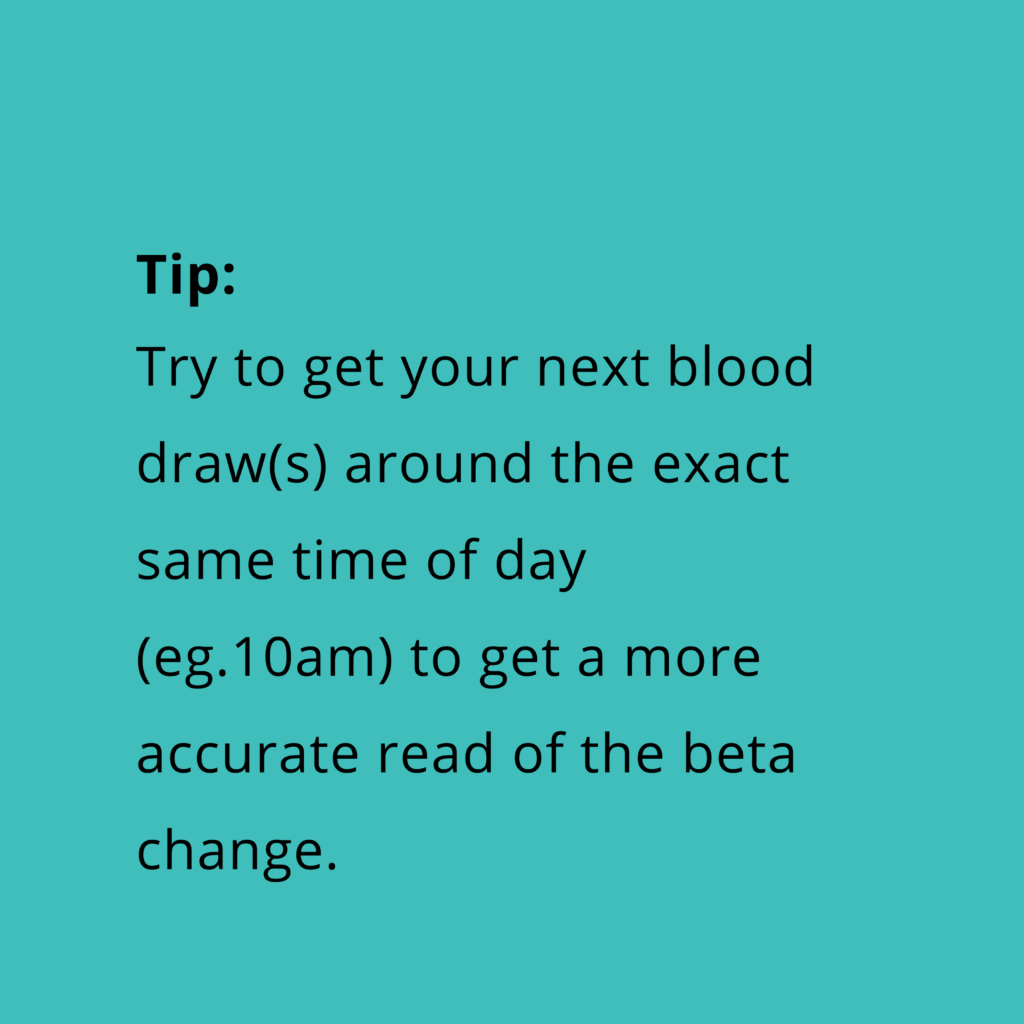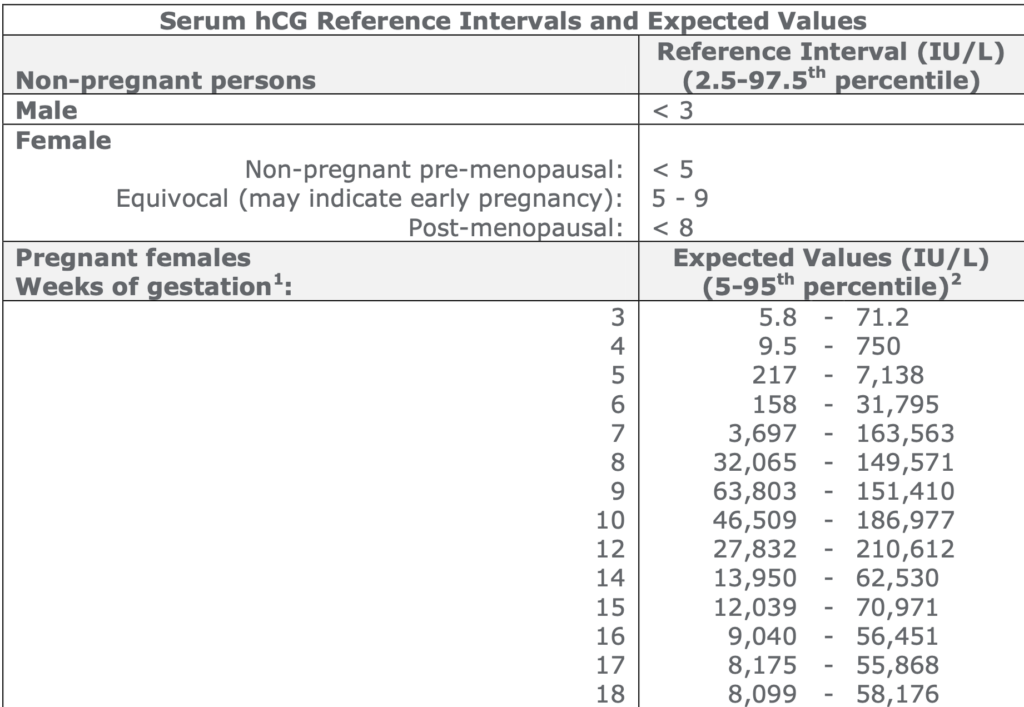The hCG blood test. There’s so much wrapped up in that one prick. I know it well.
It is much more sensitive than a home pregnancy test, so it can give you more peace of mind at revealing whether you’re closer to your dream of bringing home a baby for keeps.
There are pros and cons with 1) the benefit of getting these more detailed results but 2) with the downside of fixating on a number and wondering what it really means. It can lead you to feel more reassured but dwell on the number. Fun, right? Hopefully this info below helps you out a little.
When and where to get the hCG blood test done

The hCG blood test is usually taken 8 to 16 days after you’ve had an IUI, fresh or frozen embryo transfer and/or ovulated in a medicated or monitored cycle. The test can be done at a blood collection facility in or in your clinic or hospital setting. It varies.
You probably want the results ASAP because it’s hard not to think about it every second of the day. You’re not alone!
To get that, get the test done early in the day if possible. Some people even choose to go out of town if they can only get same-day results if they go to a lab farther away. Check ahead of time when you can expect results so that you don’t have a surprise and wait until the next day if the same-day results could be available. I know you want (and deserve) answers.
What to expect at the blood draw
I like to wear a tank top plus a cardigan or cozy jacket so I can keep warm and keep blood vessels juicy. Plus, stay hydrated ahead of time. Then I pop out my one arm for the poke. Once you (or your surrogate) get the prick, hold the bandaid or cotton ball for a few minutes to prevent bruising.
Then, you’ll probably go back to work or carry on with your day trying to remain calm, cool and collected (ha!). Waiting can be nerve-wracking and staying calm might be easier said than done. I get it. Focus on being gentle with yourself and dive into work or a project, laugh at a show or with someone, or do some relaxing activities. You’re so close to some answers.
Remember to continue to assume that you’re pregnant and follow healthy pregnancy guidelines and your doctor’s advice. I know you know that but sometimes we need the reminder. Regardless of symptoms, you’re pregnant until proven otherwise.
Understanding the test results
Eventually you’ll get the results. Now you want to understand, ‘What do my beta test results really mean?’
At about 12 days post ovulation, your doctor’s analysis of your hCG levels is probably as follows:
- Below 5 mIU/mL clinically speaking you are not pregnant. I’m so sorry. We call this a BFN, a big fat negative, because it feel awful that your dreams are popped. It’s disappointing and even devastating every time it happens and it usually doesn’t get easier. Take time for yourself. It’s not selfish to give yourself what you need. Talk to someone.
- Above 5 mIU/mL means that you are pregnant. You have a positive beta. This is a cause for celebration for some people but depending on how high it is and how far along you are, and your past experience (e.g. loss, infertility) it might cause you to postpone the celebration. The higher the level the more you’re feeling confident that this pregnant will stick but there are no guarantees. I wish there were, believe me.
There is a huge range of what is considered normal.
Check out this website to see a database of self reported hCG betas from individuals at various DPO (Days Post Ovulation) and their hCG levels that have led to a live birth; for embryo transfers add the two numbers.
Regardless of the test results, keep taking your prenatal vitamin and medication(s) your doctor has prescribed, if that’s applicable, unless they’ve instructed you otherwise.
Next steps if you are not pregnant
If you had less than 5 mIU/mL, I’m so sorry. Take all the time to grieve, and you can grieve while working on next steps, I understand that need. There are likely many more options ahead of you. It’s such a personal next step. But it could be trying again, a different medication or treatment, a different method to expand your family, or choosing not to try.
Please book a session with me if you want guidance and please take my sincere compassion for how hard this is.
Next steps if you are pregnant
If you had a 5 mIU/mL or above, you have a positive beta hCG test result and the next step may be to reconfirm that you’re pregnant and check the trajectory of your hCG by taking another hCG blood test in a few days, or you might have to wait until you have an ultrasound around 6 weeks.

Another blood test. If you have another blood test your doctor or fertility clinic will be checking if your hCG levels double approximately every 48 hours to 72 hours. E.g. 50 mIU/mL on Monday and then 100mIU/mL on your test taken Wednesday or Thursday.
You may be asked or you ask to take 2 or 3 hCG blood tests over the next week or 2 to continue to monitor.
If the levels are high – and rise steadily, you’re more confident. Unfortunately hCG levels can rise even if it is a loss or non viable pregnancy and an ultrasound is the best way to test.
If the levels stay the same or decrease – it is almost definitively a loss. I’m so, so sorry. It can be considered ‘beta hell’ waiting for the number or decrease before next steps. It’s not an easy time it can take weeks, which can be a shock. In that case you’d continue to check your hCG levels until they’re below 5 and sometimes need a check like a hysteroscopy afterwards. If the numbers decrease and then increase again go straight to your doctor to request the possibility of an ectopic or pregnancy of unknown location that requires urgent medical attention.
If it is still very low number or a slow rise – it could be a pregnancy in the right location and go forward smoothly. A slow rise does put you at a higher risk of having a loss such as a chemical or an ectopic or pregnancy of unknown location. Many healthy pregnancies started at as a slow rise. It’s the drawback of the hCG test because in a world where you just had a home pregnancy test and the ultrasound, you would probably assume it’s going well. On the flip side, this could prepare you with more tempered expectations.
Here’s a common trajectory for a pregnancy progressing towards a live birth:

Ultrasound or dating ultrasound. Next, if all is going well, your clinic or care provider might ask you to come in for a 6, 7 and/or 8 week ultrasound to check for the sac, the size, and the makings of a heartbeat. If you’re further along, they may also be able to date how far along you are and your due date. It will be a transvaginal ultrasound earlier on and is the best way to test whether you’re on the right track than the hCG test.
Pregnancy symptoms. Up until now and soon you may have pregnancy symptoms or you may not. If you have no symptoms or symptoms and then they go away, that can be normal and often everything is healthy and normal. Or it could mean a loss. Some people have no or few symptoms throughout their whole pregnancy. Everyone and every pregnancy is different.
If you experience bleeding, follow the advice of your doctor. Bleeding doesn’t mean a definite loss, definitely not.
Maternity and prenatal care. If all is going smoothly, then you’ll need to consider your transition into your prenatal care, including potential testing around 9 to 11 weeks. I know the transition can be smooth but it also might not. Changing care providers and entering a new healthcare system can mean things fall through the cracks. I hope not, but regardless you are not alone and you deserve quality care and attention. I’m here if you need me also.
Sending you warm wishes, baby dust, and compassionate smiles!
